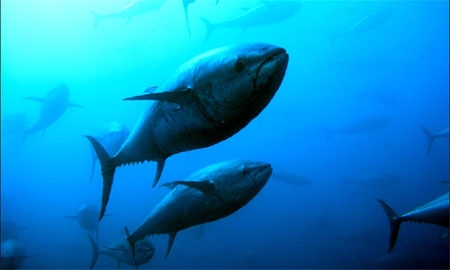Ecuador’s tuna catch in 2011 is likely to reach 200,000 tons, making it one the biggest tuna-fishing nations in the world. Given that fishing plays such a major role in Ecuador’s economy, the country has a strong interest in safeguarding the industry’s long-term viability.
However, in 2010, figures from the Association of Tuna Companies from Ecuador (Atunec) found that between January and October 2010, 402,868 tons of tuna was caught in the eastern Pacific, 16% down on what was landed in the same period in 2009. This was a warning sign of possible depletion of fish stocks.
Plus, research had found that an average of 5% of a vessel’s catch could be “bycatch” – the unintended entanglement of marine life such as dolphins and turtles.
Though Ecuador’s Tuna industry is “Dolphin Safe”, in collaboration with The International Seafood Sustainability Foundation (ISSF), the industry undertook research into how to improve its Fish Aggregating Device (FAD) fishing methods to ensure it minimized any other bycatch and could stabilize tuna numbers. In May 2011, Ecuador teamed up with scientists from the Inter-American Tropical Tuna Commission (IATTC) for an expedition in the eastern Pacific Ocean launching the next phase of a globally coordinated project to promote practical techniques to reduce the environmental impact of tuna fishing.
The expedition was a success in that it made a significant contribution to the understanding of FAD fishing practices. The joint research with the ISSF and IATTC found that it was better to improve FAD fishing techniques rather than replace them, because the proposed alternatives were less efficient and could produce imbalances between the state of resources and companies that operate fisheries as well as impact consumer involvement.

0 COMMENTS